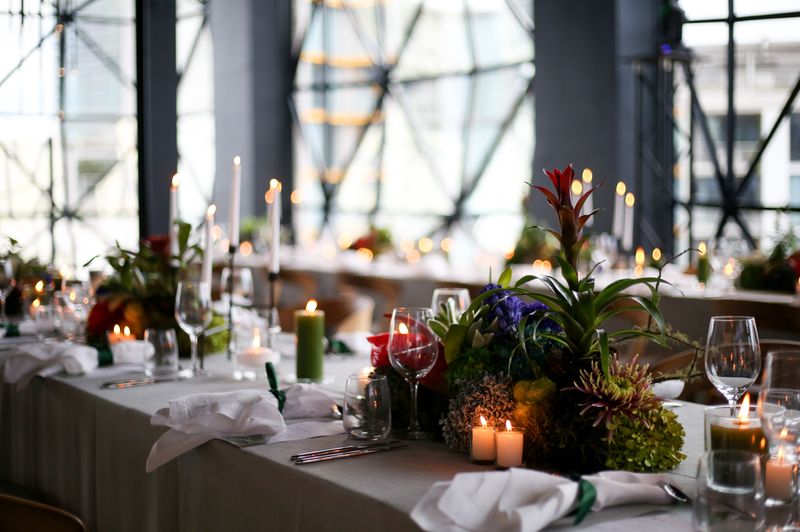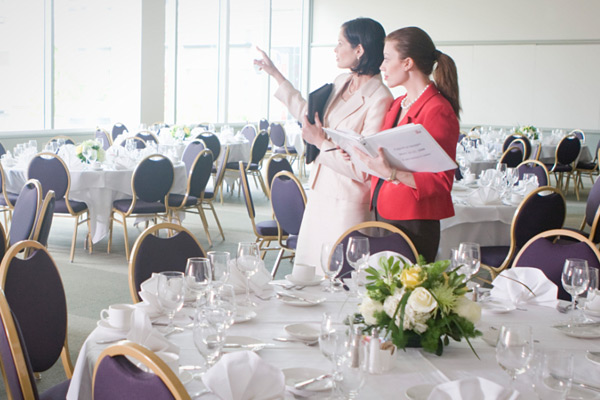What are the steps in planning an event? Making a strategy! That’s right, you read that accurately. You risk disarray, chaos, and failure to accomplish the event’s goals if you don’t have a well-thought-out plan for event planning.
Your event planning business or one-time event will be a success if you follow a formula. So, rather of going into your next event planning job blind, use this basic guide to the five stages of event planning as a reference.
What is Event Planning?
Let’s begin with the planning of an event. The term “planning” is crucial here. Every event, from bridal showers to milestone birthday parties to large corporate meetings, starts with a plan. The event planning process begins with early talks with customers about event ideas, themes, desired dates, and financial limitations.

Event planning begins with the very early phases of the idea and continues until the event takes place. And, to be honest, until a few weeks after the event while event planners finalize specifics and follow-up things. Working closely with the client to create an event that reflects the client’s vision of the gathering while also achieving the event’s goal is what event planning entails.
Clients that employ an event planner pay someone to organize all parts of the event, including associated details and action items, as well as to oversee the event until it is completed. The following are examples of event planning roles, however, they are not exhaustive:
- Choosing a general theme for the event
- Creating a budget
- Choosing a location
- Hotel contract negotiations
- Using third-party providers
- Planning a menu
- Using the services of a caterer
- Organizing guest speakers or other forms of entertainment
- Transportation coordination
- Selecting a color scheme
- Creating an invitation
Everything that goes into organizing an event is referred to as event planning. This function is part of the bigger event management umbrella.
Stage 1: Research and goal-setting
You may need to do some research before you get started, depending on the sort of event you’re planning. Some event planners may overlook this critical phase, which might spell doom for the event’s success. You should interview the person or team in charge of hosting the event as part of your study.
Find out what their objectives are, such as generating funds, receiving training, networking with other experts, or exchanging new ideas. To enhance efficiency, have a list of questions ready for the research phase. You’ll need to know the event’s budget, the date, and an estimate of how many people will attend. After you’ve finished your research, write out the event’s goals and objectives. Your goals and objectives should be specific and measurable so that you can assess the event’s success later. This list can also serve as a reference when you begin the primary event planning stages.
Stage 2: Create the Event
The master plan for your event is included in the event design phase. You’ll start by looking for a location that fits the theme of the event, the number of visitors, and the event’s purpose. Throughout the planning phase, you may collaborate with venue employees to improve communication and ensure that everything runs well. Once you’ve chosen a venue for your event, you can begin assembling a team to assist you with the remaining design responsibilities.
Delegating responsibilities to diverse team members enables you to manage an event without being overwhelmed by the specifics. Each member of your group will contribute to the master plan. The person in charge of entertainment, for example, will provide you with a list of artists as well as a schedule. The individual or group in charge of food and beverage will give a thorough menu, as well as related costs and a food service strategy. To ensure the success of your event, your event design and master plan should be as precise as feasible.
Stage 3: Promote the Event
It should be simple to brand a successful event with clear goals and objectives. You know what the event’s host wants and what the visitors are anticipating. To brand the event, use your research and design. But hold on! You’ll also need to demonstrate how your event is unique and why it is worthwhile to attend. Promotional items may help you build your brand and get people talking about your event. Is there a name for your event? Is there a motto or tagline for it?
These elements can help you market your event more effectively. As you create a brand around the event, consider a name, slogan, and logo. If guests want to come, it should be obvious what they may expect from the event. As you begin to market the event, your branding will aid you. Depending on the event host’s wishes, you can utilise an email list, social media posts, or a special invitation list.
Stage 4: Coordination and day-of planning
Your planning is coming together nicely, and you’re ready to go on to stage 4: coordination and planning day! Finalizing plans with each of your team members, as well as the event staff or volunteers, is referred to as coordination. Everyone engaged in the event should be aware of what is expected of them and the significance of their contribution to the event’s success.
You’ll need to arrange the various aspects of the day’s event and distribute the schedule to each team member as well as your venue representative. eventEach component of the event should be listed on the schedule, with a clear start and end time. You may also specify who or which group of persons is in charge of each aspect of the event. On your day-of schedule, you may also put other critical details such as who to call if there are any technical difficulties. This is a difficult period! But it’s why event planners are so successful: they pay close attention to the smallest details.
Stage 5: Assess the event
You’ve reached the final phase of your event planning checklists: assessment. A formal evaluation isn’t used by all event planners or event planning firms. If you’re new to planning or want to collect favourable comments to improve your reputation as a planner, the assessment stage is helpful. To collect feedback on conferences and formal work trainings, you can send out an online survey or hand out a printed survey to attendees. Include questions concerning the event’s structure as well as particular goals from your list.
Attendee feedback, however, is simply one aspect of the evaluation. After the event, you may look through your team’s goals and objectives to see if they were reached. If they were, that’s fantastic! If you believe you might have done better in a certain area, talk about it. Only by being eager to learn and grow can you enhance your event planning abilities.
Event Organization That Works
You now have the ideal step-by-step strategy for planning an event. These tips will help you stay organized and on track so you can get the most out of your event. Keep in mind that event planning necessitates some degree of adaptability. It’s acceptable if things don’t always go as planned. You will learn how to think on your feet and adapt to changing scenarios as an event planner.
Together, Event Managers and Event Planners work!
Event planners and event managers collaborate. It’s difficult to separate these two duties because they’re not just tightly connected, but their responsibilities frequently overlap. Individual event planners and event managers may both offer event planning and event management services. The event planner or corporate event management team, the venue, and the event itself all play a role.
It’s crucial to know the distinctions between the two so you can decide which services you’ll offer. If you provide event planning services for a large-scale event, for example, you will work with an event manager who will coordinate your services with those of the food manager, audiovisual team, and so on.


